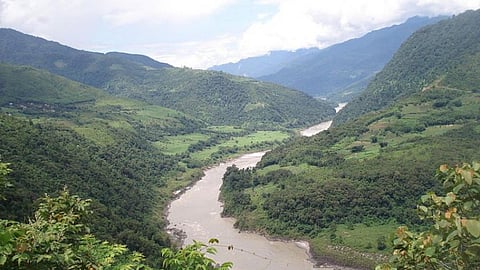
- Topics
- Feature
- Opportunities & Events
- Data
- Hindi Portal
- Topics
- Feature
- Opportunities & Events
- Data
- Hindi Portal

The expert panel of the environment ministry has given green clearance to the 3,097 mega-watt (MW) Etalin hydropower project in Arunachal Pradesh and 1,856 MW Sawalkote hydropower project on the Chenab river in Jammu and Kashmir. Both the clearances are in accordance with the government’s push to establish prior user rights on the transboundary rivers. The estimated costs for both the projects are over Rs 25,000 crore and Rs 22,000 crore respectively.
After a long denial, the Haryana government has accepted the Najafgarh lake as a water body. The redesignation has now enabled both the Haryana and the Delhi governments to take steps for checking pollution and encroachments in the lake. Najafgarh lake is located in south-west Delhi and Haryana and used to cover more than 300 sq km of area. It was also known for being a natural bird sanctuary. However, the construction of sectors 106, 107,108 of Gurugram in the "high flood level" area of the lake and ingress of the city’s sewage have turned the lake into a sewage pool.
Karnataka is facing the worst drought in 42 years so much so that even the ragi crop which requires very little water is also failing. The water levels in the Krishna Raja Sagar (KRS) dam, which provides drinking water to Bengaluru, hit an all-time low of 78.42 ft last week. The failure of the southwest and the southeast monsoons has caused a drastic reduction in the foodgrain production in the state which is expected to fall to 91.45 lakh tonnes against the target of 140 lakh tonnes.
A 180-bigha bheri that employed 52 fishermen and helped generate a revenue of around Rs 60 lakh a year in the East Kolkata wetlands has disappeared. A local mafia claimed rights over the bheri and pressurised the fishermen to quit in exchange for a huge compensation. The bheri is now completely dry and has fallen victim to illegal urban sprawl. Ecologist Dhrubajyoti Ghosh has informed that in 1997, there were 264 fully functional and 12 partially functional bheris mapped in EKW but a census in 2014 could establish only 202 bheris.
Citing inadequate demand, Coca-Cola India has stopped production at three plants ahead of the peak summer season. However, one of these plants, Kaladera unit in Jaipur, has been shut due to increased difficulty in accessing groundwater from a depleted aquifer, claimed activists. Also, Kaladera plant is the fourth Coca-Cola plant to face opposition over environmental issues after the Plachimada plant in Kerala that got shut in 2005 and two plants in Uttar Pradesh that are also facing local resistance.
This is a roundup of important news from February 21 - 26, 2017. Also, read the policy matters this week.